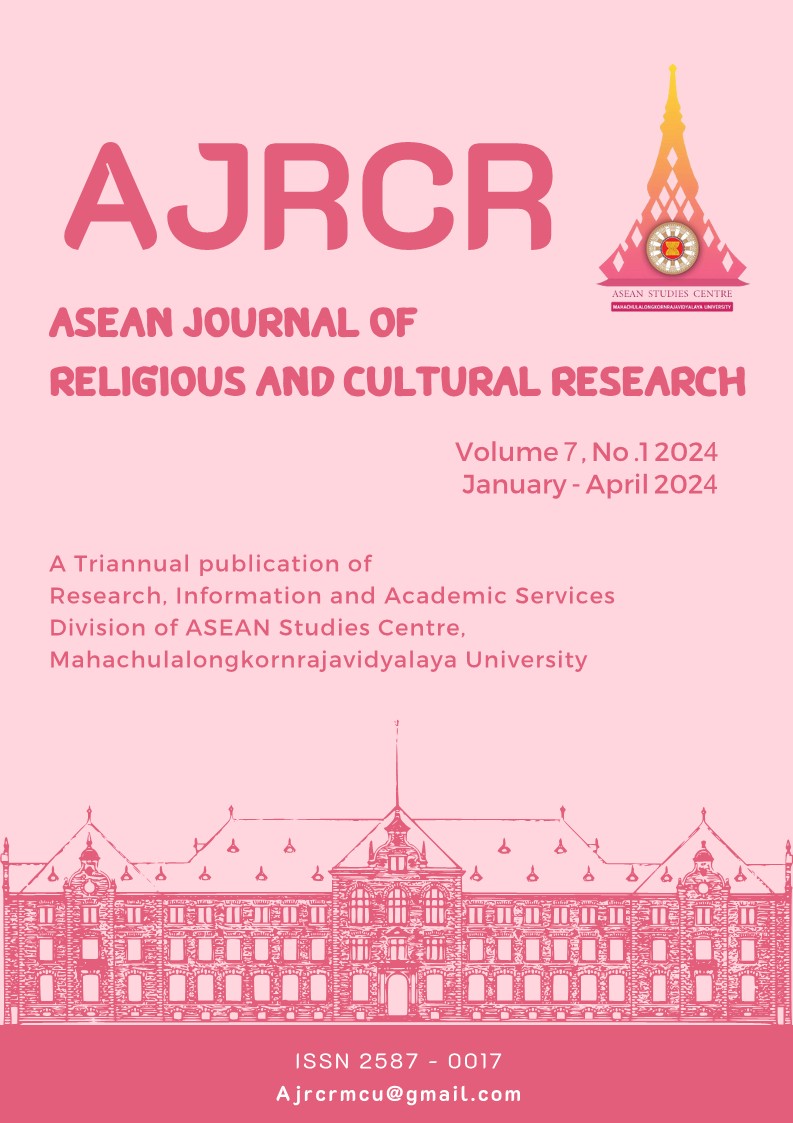Quality Assurance within Educational Institutions in the Digital Age
Keywords:
Internal Quality Assurance, Educational Institutions, Digital Age, Principles of Buddhism (Iddhipāda 4)Abstract
Educational quality assurance is a process of conducting activities according to the normal mission of educational institutions that want to continuously improve the quality of learners. The mechanisms need to be developed to be able to achieve educational goals and standards about the readiness and standards of education management in educational institutions to build confidence in the service recipients. The educational institutions will produce with quality and the needs of society. The heart of system reform lies in creating a system of accountability and relates to the principles of the Buddhadhamma (Iddhipāda 4), which are principles that should be integrated and applied with educational quality assurance work in order to overcome various problems and obstacles in work or administration in all respects, which leads to success in various duties as intended in all respects, consisting of: 1) Chanda (will, satisfaction), 2) Viriya (satisfaction; effort; perseverance, 3) Citta (concentration, which is to set the mind to be aware of what you are doing and do it with thought, to be focused, and not to let the mind wander), and 4) Vimaṅsā (investigation and reflection) to put it simply, to have a loving heart, to strive, to be intent on doing, to use wisdom to investigate carefully pondered to improve the quality of education. Education quality assurance is more directly responsible to parents and learners. Educational institutes should be the main unit in the development of educational quality and have the freedom to administer whether it is curriculum design, teaching methods and measurement methods according to the concept of 21st century skills in accordance with the vision and intent of the school and responding to the needs of the community and internal quality assessment of educational institutions which causes the reform of the education system. As a result, the country’s educational development activities in the past, along with rapid changes in technological innovation, educational institutions have to adapt to keep up with the changes in the digital world by applying technology systems in the field. School management aims to develop educational institutions to be innovative educational institutions, which is an adaptation for the survival of educational institutions in a sustainable manner by applying innovations in the digital age to enhance the potential of learners and focus on students to have the skills to create innovation.
Downloads
Published
2024-11-06
How to Cite
Piromtam, K. . (2024). Quality Assurance within Educational Institutions in the Digital Age. ASEAN Journal of Religious and Cultural Research, 7(1), 6–13. retrieved from https://so02.tci-thaijo.org/index.php/ajrcr/article/view/274758
Issue
Section
Articles





